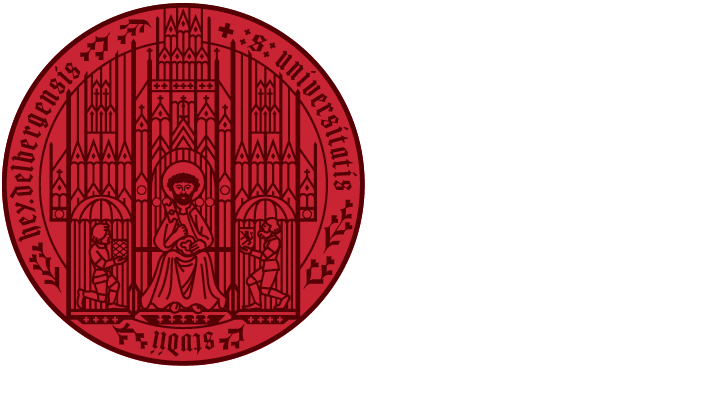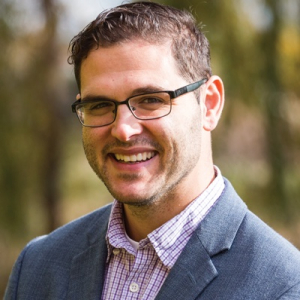 Award-Winning Work:
Award-Winning Work:
Jesus Christ as the Son of David in the Gospel of Mark (Cambridge: Cambridge University, 2019).
Current Position:
Max Botner is Assistant Professor of New Testament at Grand Rapids Theological Seminary in Grand Rapids, Michigan.
Current Research Activities: My next project focuses on sacrificial imagery and the concept of atonement in the Pauline corpus. I am also working on an English translation of Wrede’s Vorträge und Studien (Eerdmans) and an advanced Greek reader for students of biblical studies (Baker Academic).
“God and spirituality” in the award-winning publication: My book treats Christology as an exercise in messianic discourse: a linguistic act that draws on the inherited patterns of speech, idioms, and frames of the Jewish scriptures in order to project a particular vision of the world. Markan messiah language, I argue, involves the interplay between exegetical creativity and empirical constraint. Thus the life, death, and resurrection of Jesus shapes how the evangelist reads scriptural traditions about the Davidic king, so that the path to exaltation must run through the gauntlet of opprobrium and death. The son-of-David question is not a pawn in some abstract christological debate—i.e., is Jesus of Nazareth really the messiah son of David?—but one element of a broader hermeneutical strategy about how, when, and where to apply elements of the tradition to the Christ-event.
Academic Address:
Grand Rapids Theological Seminary
1001 E. Beltline Ave. NE
Grand Rapids, MI 49525
max.botner@cornerstone.edu
616.949.5300 (office)
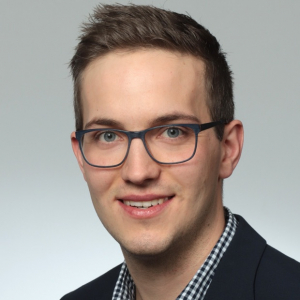 Award-Winning Work:
Award-Winning Work:
Hohe Messianologie. Übermenschliche Aspekte eschatologischer Heilsgestalten im Frühjudentum. WUNT II,532 (Tübingen: Mohr Siebeck, 2020).
Current Position:
Postdoc / Assistant at the Departement of New Testament Studies at the University of Zurich, Switzerland.
Current Research Activities:
Ruben A. Buehner is currently working on a Habilitationsschrift about Paul within diasporajudaism analyzing how Paul thought that the Gospel that he proclaimed effects the Jewish life of Jewish followers of Christ.
“God and Spirituality“ in the award-winning publication:
The hope for Israel’s salvation through a Messiah sent by God constitutes an important aspect of the larger eschatological framework for many Jews in the Second Temple Period, including the early Jesus movement. Ruben Bühner’s study Hohe Messianologie is about the relation between these messianic figures and the God of Israel. As he analyzes all relevant sources, he demonstrates to what extent Jews in the Second Temple period portrayed their hoped-for Messiah as a superhuman figure who stands in close proximity to God. This study not only adds to our knowledge of the diverse character of early Jewish messianism. By investigating the Jewish background for the belief in the divinity of Jesus Christ it also sharpens our concepts of ancient Jewish Monotheism and asks for new models for the relation of what is called “Judaism” and “Christianity.”
Academic Address:
University of Zurich
Theologische Fakultät
Kirchgasse 9
8001 Zürich – CH
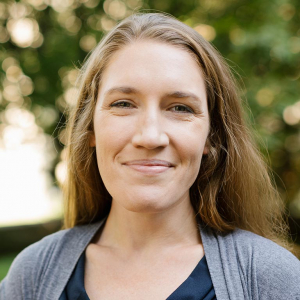
Award-Winning Work:
Archival Historiography in Jewish Antiquity (New York: Oxford University Press, 2020).
Current Position:
Laura Carlson Hasler is an Assistant Professor of Religious Studies and Jewish Studies at Indiana University, Bloomington (USA), and she holds the Alvin H. Rosenfeld Chair in Hebrew Bible.
Current Research Activities:
Carlson Hasler is currently working on a project that formulates new terms for understanding the imprint of imperialism on Second Temple Jewish texts. The project will focus on representations of economically-inflected spaces, collective sensation, and debt in the late biblical prophets.
“God and Spirituality“ in the award-winning publication:
Archival Historiography in Jewish Antiquity reframes contemporary expectations for how to read some of the most difficult, reviled, and ignored parts of Jewish and Christian scriptures. In the modern West, the book of Ezra-Nehemiah has been reviled and neglected, largely because of the cited documents that persistently interrupt the narrative of the return from exile in Babylon. Archival Historiography contends that reading Ezra-Nehemiah as a representational hybrid – part story, part archival space – transforms how readers might derive meaning from it. I invite readers to interpret this text not only as a story but also as a formative repository of memory for Second Temple Jews. The archival form of Ezra-Nehemiah opens readers to novel considerations of how scripture might signal the re-vivification of collective memory in the wake of destruction and deferred political autonomy. Archival Historiography argues for the manifold ways in which scripture – and indeed texts – can act.
Academic Address:
Email: lcarlso@iu.edu
College of Arts and Sciences
Sycamore Hall 230,
1033 E 3rd St.,
Bloomington, IN 47405–7005
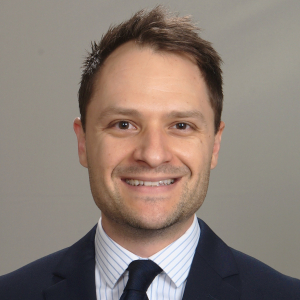 Award-Winning Work:
Award-Winning Work:
Possession and Other Spirit Phenomena in Biblical Literature. Doctoral Dissertation (Harvard Divinity School, 2019).
Current Position:
Reed Carlson is Assistant Professor of Biblical Studies at United Lutheran Seminary in Gettysburg and Philadelphia, Pennsylvania.
Current Research Activities:
He is currently revising his dissertation for publication with De Gruyter. His next research project investigates the social effects of shared belief in the immanent “end of the world” through comparing ethnographic work on modern apocalyptic movements with the literary reception of the Noah story in early Judaism and Christianity.
“God and Spirituality“ in the award-winning publication:
This project maps the functions of spirit language, rituals, and myths in the Hebrew Bible and in Second Temple Jewish literature. Many existing studies of these phenomena aim to decode them using modern categories (e.g. mental health, symbolization of oppression, demonization of the ‘other’). I employ a different approach, utilizing ethnographic studies on possession, trance, and other related practices from communities around the world (and especially from the global south and its diasporas). This comparison reveals facets of biblical spirit texts not usually recognized, including “technologies of the self,” social commentary, therapeutic self-othering, and means to reembody the past. Further, I suggest that frequent assumptions of early Christian paradigms for spirit phenomena (e.g. exorcism, Holy Spirit baptism) have obscured the ways in which early Jewish literature presents spirit phenomena most often as corporate, cultivated, and collaborative—modes that are consistent with the ways that spirit possession is practiced widely around the world today.
Academic Address:
7301 Germantown Avenue
Philadelphia, PA 19119
USA
Email: rcarlson@uls.edu
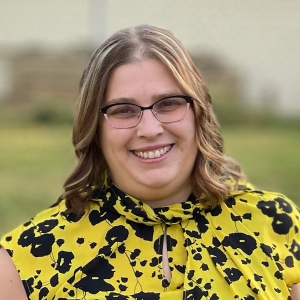 Award-Winning Work:
Award-Winning Work:
The Story of Sacrifice: Ritual and Narrative in the Priestly Source (Tübingen: Mohr Siebeck, 2020).
Current Position:
Assistant Professor, Department of Hebrew and Judaic Studies at New York University
Current Research Activities:
Dr. Feldman is currently working on two book-length projects. The first is a monograph focused on the proliferation of a diversity of ideas about sacrifice and sacred spaces in Second Temple Jewish literature. The second is an English translation of the biblical priestly narrative for the World Literature in Translation series at the University of California Press (expected 2023).
“God and Spirituality“ in the award-winning publication:
One of the main conclusions of The Story of Sacrifice is that the rhetoric and discourse of the priestly narrative work together to open up the world of the priestly cult to those members of the community who typically only stand at its margins. Lists of sacrificial instructions and purity laws may not look like spirituality in the 21st century, but in the mid-first millennium BCE, this was a novel and democratizing approach to religious life and practice. It is through these lists of sacrificial instructions and laws about purity that the Israelites could come to understand who their god was, how he interacted with them, and how they should interact with him. The Story of Sacrifice aims to highlight these under-recognized aspects of the Priestly Narrative and to show that it is an innovative use of writing to make a claim about the centrality of non-priestly Israelites in the priestly cult.
Academic Address:
Skirball Department of Hebrew and Judaic Studies
New York University
53 Washington Square South Room 101
New York, NY 10012
Email: lmfeldman@nyu.edu
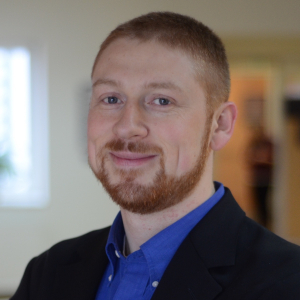 Award-Winning Work:
Award-Winning Work:
„Sit at My Right Hand”: The Chronicler’s Portrait of the Tribe of Benjamin in the Social Context of Yehud. LHBOTS 628 (London/New York: Bloomsbury T&T Clark, 2016).
Current Position:
Benjamin Giffone is Assistant Professor of Biblical Studies and Director of the Center for Faith and Human Flourishing at LCC International University, Klaipėda, Lithuania.
Current Research Activities:
My current research project—including a monograph in progress, several published and forthcoming articles, and a coedited volume—focuses on the redactional history of the Hebrew Bible’s narrative literature through comparisons with laws in the Pentateuch that govern worship and economic activity.
“God and Spirituality” in the award-winning publication:
This work of biblical scholarship contributes to the field of theological studies, breaking new interdisciplinary ground through the application of concepts from the field of political economy to illumine the Chronicler’s rhetorical strategy in the Persian context. Following the national trauma of the Babylonian conquest of Judah (587 BCE), the Chronicler rewrote the history of Israel and Judah in order to marshal support for the Jerusalem cultus in the Persian period. Among other aims, the Chronicler sought to bring together disparate, warring identities of Judah and Benjamin, represented in Israel’s traditions not least by the royal characters David and Saul. The Chronicler’s outreach to Benjamin includes omission of controversial material from the books of Judges, Samuel and Kings; and the creative association of Benjamin with Judah (and the priestly tribe of Levi) through the key concepts of king, temple and people.
Academic Address:
LCC International University
Kretingos g. 36
Klaipėda, Lithuania
LT-92307
E‑Mail: bgiffone@lcc.lt
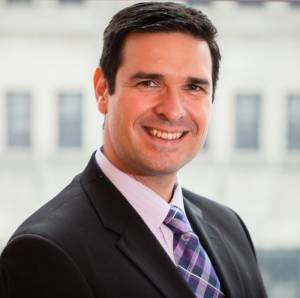 Award-Winning Work:
Award-Winning Work:
Civilized Piety: The Rhetoric of Pietas in the Pastoral Epistles and the Roman Empire (Waco, Texas: Baylor University Press, 2017).
Current Position:
Christopher Hoklotubbe is Assistant Professor of Religion at Cornell College, a small liberal arts college in Mount Vernon, Iowa. He also serves as a faculty member for NAIITS: An Indigenous Learning Community.
Current Research Activities: Hoklotubbe is currently completing two writing projects on the Pastoral Epistles and then will turn his attention to a larger research project on North American Indigenous interpretations of the Bible.
“God and Spirituality” in the award-winning publication:
Civilized Piety explores how the author of Pastoral Epistles represents Christ-followers as exemplifying one of the most essential and esteemed Roman virtues, pietas or “piety” (Greek: eusebeia; “godliness” in NRSV). By observing how claims to piety advanced a range of social-political aims in Roman imperial propaganda, honorary inscriptions, and ancient philosophical literature, we can better appreciate how Pastoral Paul’s own rhetoric of “piety” offered an expression of Christianity that could “pass” as civilized in the eyes of their Greek and Roman neighbors who may have been suspicious of their seemingly anti-social and superstitious ways of life. Civilized Piety invites readers to imagine not just what theological language means, but what it does—both for ourselves and for others navigating social-political situations different from our own.
Academic Address:
Dept. of Religion
600 1st Street
Mount Vernon, Iowa, 52314
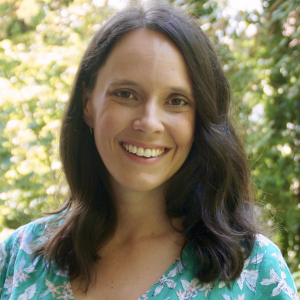 Award-Winning Work:
Award-Winning Work:
Centralizing the Cult: The Holiness Legislation in Leviticus 17–26. FAT 134 (Tübingen: Mohr Siebeck, 2019).
Current Position:
Julia Rhyder is Post-doctoral Researcher and Lecturer at the Department of Hebrew Bible and Semitic Philology, University of Basel.
Current Research Activities:
Julia Rhyder is currently writing a book, provisionally entitled Celebrating War: Festivals and War Commemoration in Hellenistic Judea, that analyzes key texts of the Hebrew Bible and broader Second Temple writings that describe festivals that commemorate warfare. Providing a fresh analysis of historical and comparative evidence of commemorative festivals in the broader Hellenistic eastern Mediterranean, the book explores why festivals took on a stronger commemorative character in Hellenistic Judean sources when compared to earlier biblical traditions. It thus provides new insights into how ancient Judeans participated in the commemorative cultures of the Hellenistic world.
“God and Spirituality“ in the award-winning publication:
Cultic centralization is typically thought to be the process of restricting the sacrificial worship of God to a single sanctuary in ancient Israel. However, Centralizing the Cultargues that centralization raises fundamental questions about religious practice, beyond the issue of where God should be worshipped. The book examines centralization in the section of Leviticus known as the “Holiness legislation” (Lev 17–26). It argues that these materials use ritual law to make a new case as to how the Israelites might pursue a religious life that is of a fundamentally centralized character: they must defer to a central shrine, standardized ritual processes, and a hegemonic priesthood. Centralizing the Cult situates this distinctive theology of centralization within the historical challenges that faced priests in Jerusalem during the Persian era, as they sought to encourage the value of communal unity and the pooling of resources to ensure the successful functioning of the newly-established Second Temple.
Academic Address:
Theologische Fakultät
Nadelberg 10
4051 Basel
Switzerland
E‑Mail: julia.rhyder@unibas.ch
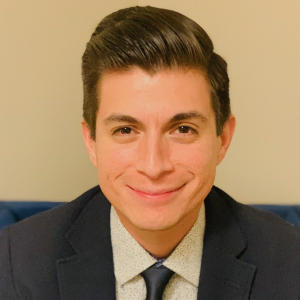 Award-Winning Work:
Award-Winning Work:
The Revolution of Tradition: Liberation Theology’s Contribution to the Formulation of a Comprehensive Theory of Social Justice. Doctoral dissertation (The University of Chicago, 2020).
Current Position:
Raul Zegarra is Adjunct Professor at the Department of Theology, Loyola University Chicago.
Current Research Activities:
I am currently working on a book manuscript provisionally entitled “The Revolution of Tradition: Reinterpreting Liberation Theology’s Contribution to Social Justice.” Based on my doctoral dissertation, this manuscript puts forth an interdisciplinary interpretation of liberation theology that underscores its revolutionary approach to the question of social justice. In doing so, my work examines the way theologians and lay Christians find balance between their loyalty to tradition and their commitment to progressive politics, while also providing the first systematic account of the development of liberation theology in the last thirty years.
“God and Spirituality“ in the award-winning publication:
My work studies one of the central areas of human affairs in which our understanding of spirituality is both challenged and enriched: social justice. Questions of social justice point to the political arena and to social struggles that may seem foreign to what people often conceive as the spiritual journey. My investigation challenges these preconceptions by focusing on the example of liberation theology. Liberation theologians and lay activists advocate for a more comprehensive approach to the Christian faith, one that includes issues such as fair wages, affordable housing, adequate healthcare, gender equality, among others. In this approach, the critique of systemic injustice and active solidarity with the poor and marginalized are not separate, but rather essential elements of the spiritual journey toward God. My work examines how liberation theology expands—both theoretically and in practice—our understanding of the spiritual life, making central to it the concern for the enhancement of social, political, and economic conditions here and now.
Academic Address:
1032 W Sheridan Rd
Crown Center, Room 300
Department of Theology
Loyola University Chicago
Chicago, IL 60640
USA
Email: rzegarra@luc.edu
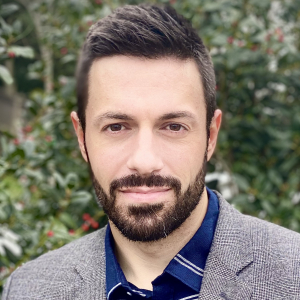 Award-Winning Work:
Award-Winning Work:
Current Position:
Assistant Professor of Theology and Philosophy, George Fox University
Current Research Activities:
Zorzi’s next book analyzes how a defining tension within the liberal tradition emerged through Rousseau’s influence, including his influence on Kant. The project explores how Rousseau’s ethical, epistemological, and theological departure from Locke with regard to humanity’s relationship to the law of nature produced a distinctive view of the relative moral authorities of the individual person and the political community. Navigating the tension between the Rousseauian and Lockean views of the balance of moral authority between the person and the people, the project argues, is critical to understanding and beginning to ameliorate problematic aspects of contemporary liberalisms.
“God and Spirituality” in the award-winning publication:
The Person and Authority offers a new perspective on the thought of John Locke that has broad implications for our understanding of liberalism. The project reconstructs a version of liberalism that is more complex and thicker ethically than recent liberalisms, one nevertheless possessing elements that will be highly attractive to contemporary defenders of liberalism and disaffected post-liberals alike. That reconstruction is accomplished by means of a startling rereading of a canonical figure, delivering new insight into the nature of and reasons for liberalism’s emergence in history. Zorzi’s rereading of Locke proceeds by foregrounding Locke’s view of personhood—which centers on each person’s accountability to objective moral requirements legislated by God—in his moral and political philosophy as a whole. Doing so makes it possible to show Locke’s writings to form a much more coherent whole than most commentators have been able to see and to propose convincing resolutions to a number of significant interpretive questions about his thought.
Academic Address:
414 N. Meridian Street
Newberg, OR 97132
Email: gzorzi@georgefox.edu

